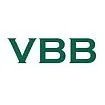- with readers working within the Banking & Credit industries
On 18 January 2015, a major reform of Polish competition law entered into force. The changes concern, inter alia, (i) limitation periods for sanctioning competition law infringements; (ii) merger notification rules; (iii) leniency procedure; (iv) settlements; and (v) personal liability of individuals for anti-competitive practices.
In relation to the limitation period for sanctioning competition law infringements, the limitation period of one year has been extended to five years from the end of the year in which the infringement ceased.
In relation to the merger notification rules, the changes introduce a two-phase merger control procedure. Mergers that do not raise any serious competition law concerns will be reviewed in phase one. The time of review during phase one is one month from the filing of the notification. More complicated mergers will be reviewed in phase two, during which the Polish Competition Authority ("UOKiK") will have another four months to review the proposed transaction. The new regime preserves the "stop the clock" rule, according to which the above time limits do not run in case of requests for information, clarification, or payment by the UOKiK.
In relation to the leniency procedure, a company filing for leniency no longer has to show that it was not the initiator of the anti-competitive agreement. However, the new rules require that a leniency applicant does have to show that it did not "urge" others to participate in the anti-competitive practice. In addition, the new rules introduce a "leniency plus" concept. According to this concept, an applicant that has filed for leniency in relation to one cartel can be granted an additional reduction of 30% from the fine imposed for the cartel if it files, as a first applicant, another leniency application in relation to another cartel.
Moreover, the changes introduce a settlement procedure whereby companies agreeing to settle their case can benefit from a fine reduction of 10%. To benefit from the settlement procedure, the companies concerned must: (i) voluntarily admit liability for the anti-competitive practices investigated by the UOKiK; (ii) not challenge the amount of the fine; and (iii) not appeal the findings of the UOKiK. The settlement discussion must be initiated before the completion of the infringement proceeding by the UOKiK acting upon its own initiative or upon a request by one of the parties.
Finally, personal liability for anti-competitive practices has been introduced. In particular, individuals performing managerial functions who intentionally allow for the competition law violation can be fined up to PLN 2 million (approximately € 468,000). The fine is administrative in nature and can be imposed only if the company itself has been found liable for a competition law violation. The individuals concerned are also entitled to file a leniency application according to the general leniency rules.
The content of this article is intended to provide a general guide to the subject matter. Specialist advice should be sought about your specific circumstances.

